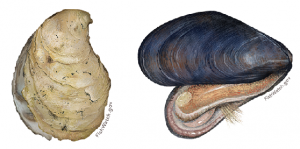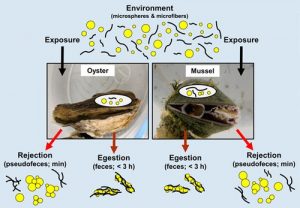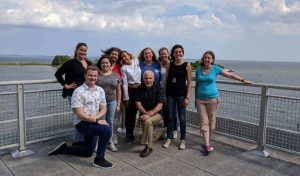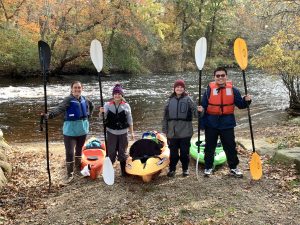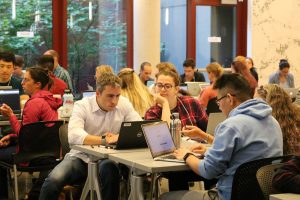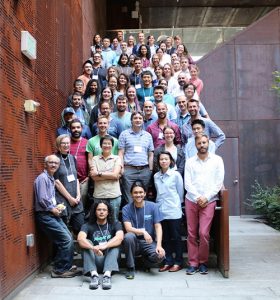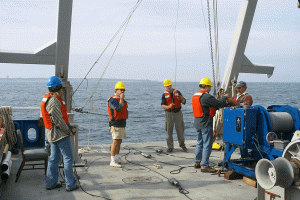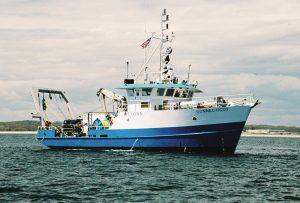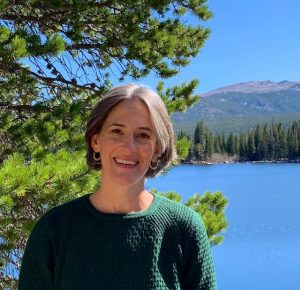
Despite the 2-hour time difference, Michelle Fogarty answers my Skype call with enthusiasm at 8:30am MDT. Michelle is a recent Marine Sciences alumna, who is now based in Boulder, Colorado working at the National Renewable Energy Laboratory (NREL). While at UConn, she studied air-sea interactions with Dr. Melanie Fewings. She graduated with her PhD in 2018, and her dissertation is available online for those interested in learning more. We spoke about her job search process, her current position, and advice she has for current graduate students. Interviewer: Molly James
Molly: What is your current position?
Michelle: I am a Postdoctoral Researcher in Marine Energy Resource Characterization at the National Renewable Energy Laboratory, Flatirons Campus, in Boulder, CO. I’ve been there for 8 months, since February 2019. NREL is a DOE-owned, contractor operated national lab, and we work with industry and academic partners to accelerate the commercialization of renewable energy technologies and diversify the US’s energy portfolio.
Q: How did you hear about it?
Michelle: I remember seeing the posting online somewhere — probably on LinkedIn, the Coastal List listserv or the MPOWIR jobs board. But, I didn’t apply based on the posting because there was no contact information for the principal investigator (PI), only instructions for submitting an application through the online portal. Without being able to research more about the group I’d be working with, I didn’t pursue it further. Later when I attended the Mid-Atlantic Bight Physical Oceanography and Meteorology (MABPOM) conference, I spoke with an acquaintance who knew about the NREL position and offered to send an introductory email to the PI. After a phone call with the PI, I decided to apply.
Q: What was the hiring process like?
Michelle: Over the course of three months, October to December 2018, I submitted my cover letter and CV, had a phone interview with Human Resources, and visited Boulder for an in-person interview. During the in-person visit, I gave a 15-minute presentation and fielded questions from a group of about 10 people, which was followed by a 1-hour Q&A session with a smaller interview committee that covered a larger range of topics and allowed me to ask questions of them as well. A few weeks later, I was offered the job. I drove from CT to CO and reported for work at the beginning of February [2019]. I think it’s worth pointing out that from a hiring standpoint, there’s a difference between being brought on as a researcher or as a postdoc. As a postdoc, the main focus is on building your professional capacity, and NREL is committed to providing opportunities and mentorship along the way.
Q: What are you researching?
Michelle: As a member of the Marine Hydrokinetic Energy (MHK) group within the Water Power team, I am working on tidal energy resource characterization. My first project is to calculate characteristic flow and turbulence statistics from data collected at the Western Passage site near Eastport, Maine and write a journal article describing the results. That data was collected before I began at NREL. I’m also working on preparations for another tidal energy site resource characterization field campaign in Cook Inlet, Alaska. The results of both projects will document relevant flow conditions at potential tidal energy sites, to be used to validate regional circulation models, and will help device simulation tools estimate realistic loads on tidal turbines. More recently, I’ve started to coordinate with outside partners to get two new wave buoys deployed in 2020 to increase our wave resource characterization efforts. I am motivated by knowing that the results of my research will be used to help solve real-world problems.
Q: What is your work life like and how does it differ from your experience during grad school?
Michelle: There is little obvious hierarchy at NREL on a day to day basis like there was in grad school (undergraduate students/graduate students/postdocs/staff/faculty, etc.). While I still do a lot of work independently, we work in teams. On a weekly basis I participate in more collaborative efforts than I typically did during grad school. I work with people at all stages in their careers, and the tasks I’m given are based on my skills, my willingness to participate, and my availability.
I work a 40-hour week and complete a time sheet that accounts for each hour of work and which project the work was associated with, so that’s quite a bit different than the grad school structure. It feels more like a consulting job, where you are required to bill out your hours to a specific project. I have a cubical, and most of my time is spent working independently at my desk, with various project-based and MHK or Water Power group meetings throughout the week. I will continue to attend conferences like Ocean Sciences to keep in touch with the network of people I developed during grad school, and will get to know a new community of people at marine energy related conferences, too.
Q: What advice do you have for current graduate students?
Michelle: Talk to as many people as possible, you never know which connection will turn out to be useful. Keep notes of those interactions. Start doing this as early in your graduate school career as possible so 1) you get comfortable with it and 2) you develop relationships out of genuine interest and aren’t making the initial attempt to network at the moment you need something. Talk with people who have jobs like the one you think you want and to people who have jobs you’re “sure” you have no interest in. Do this through informal conversations at conferences, at events that have nothing to do with work, and invite people you’ve met in person or found online to participate in informational interviews with you on the phone or in person. I highly recommend sending hand-written thank you notes after those informational interviews, too. I have always been impressed at how willing people are to give their time and sending a thank you card is a small way to show how much you appreciate the kindness.
